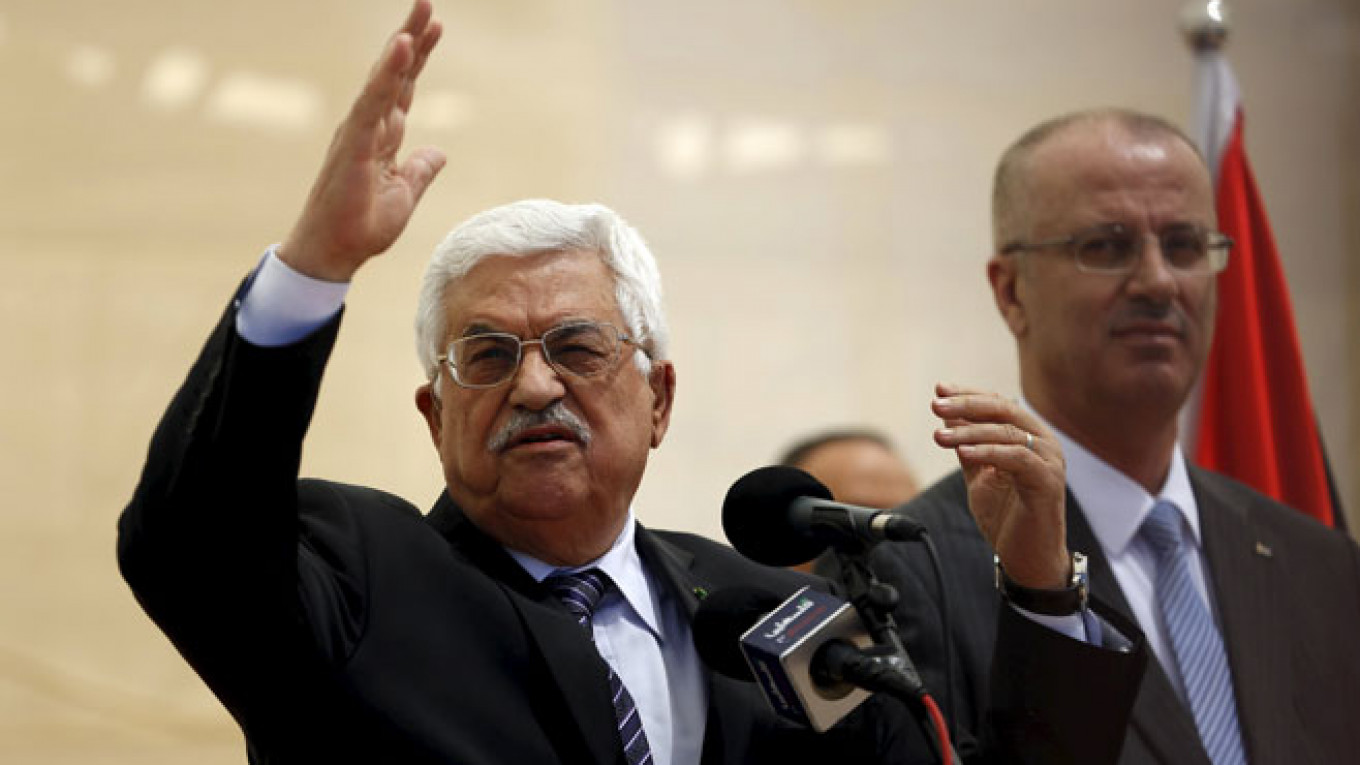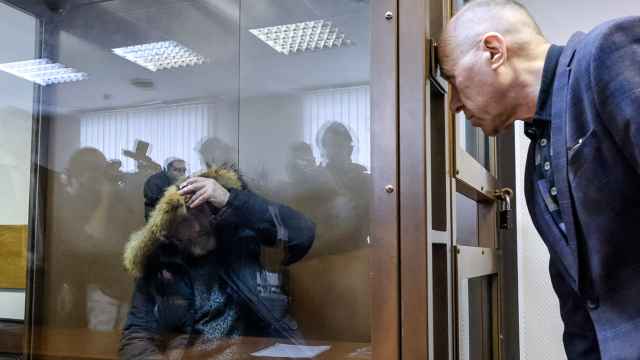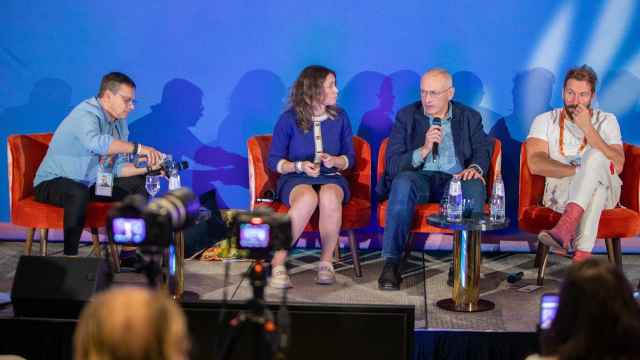Palestinian leader Mahmoud Abbas is set to meet with President Vladimir Putin in Moscow on Monday, an official visit political analysts said will showcase Russia's balancing act in the Middle East and its desire to serve as a mediator in seemingly intractable conflicts.
Abbas will meet with both President Vladimir Putin and Prime Minister Dmitry Medvedev to discuss the expansion of bilateral trade, as well as cooperation on humanitarian and economic issues, the Kremlin said in a statement last week. A series of agreements is expected to be signed during the visit, the Interfax news agency reported Sunday.
The Kremlin said that "special attention" would be dedicated to the current situation in the Middle East and North Africa, and to the Palestinian-Israeli peace process.
Abbas, who first visited Moscow in 2005, is a recurring name in the Kremlin's guestbook. The Palestinian leader made two official visits to Moscow last year. Abbas has met with Russian officials in Moscow on average once a year since coming to power a decade ago, according to Russian state media.
Moscow has not been compelled to pick an ally in the Israeli-Palestinian conflict, traditionally fostering cordial relations with both sides, political analysts said.
"Russia has worked to maintain good relations with all sides in the Middle East," said Yelena Suponina, an adviser to the director of the Russian Institute of Strategic Studies. "This is a tactic it has employed for many years."
Russia's frequent interactions with Palestinian officials and its voiced support for Palestinian statehood has not preventing it from fostering cordial relations with Israel. Trade between Russia and Israel exceeded more than $3.5 billion in 2013, having more than doubled in the previous few years. Israeli farmers were also eager to gain a larger portion of the Russian market when Moscow declared a one-year ban on a wide range of Western food products last August.
Russia and Israel also foster close interpersonal ties. The countries have scrapped visa requirements for each other's nationals, and Israel is home to a large Russian-speaking community.
Despite its close ties to Israel, Russia has also voted with the Palestinians at the United Nations, invited the Hamas Islamic group to Moscow and supported President Bashar Assad's regime in Syria, all to the dismay of Israeli Prime Minister Benjamin Netanyahu.
Russian authorities have also been critical of Israel's approach to the Palestinian question. The Foreign Ministry said in a statement in September that it regarded Israeli plans to annex land plots in Palestinian territories "with concern," warning that the move could "significantly harm the prospects of the Palestine-Israel Peace Process." In October, the Foreign Ministry warned against Israel's plan to build 2,600 residential units in Givat Hamatos, a settlement in East Jerusalem.
Abbas' presence in Moscow helps the Kremlin present itself as a key mediator on issues in the Middle East, which raises Russia's prestige on the international stage, analysts told The Moscow Times.
According to the Kremlin's website, Putin reiterated Russia's "readiness to facilitate mediation efforts and implement peace initiatives" in a telephone call with Netanyahu in July, at the height of clashes between Israeli soldiers and Hamas militants in the Gaza Strip. Putin visited Israel, the West Bank and Jordan in 2012, demonstrating Russia's willingness to foster relations with political entities that have had a long history of disagreements with each other.
Russian political analysts said Israel has accepted the Kremlin's stated support for Palestinian authorities. Jerusalem's reluctance to budge on certain issues — including the creation of a full-fledged Palestinian state — renders Russia's support for Palestine inconsequential in the grand scheme of Russia-Israel relations, they said.
"To Russia, the Palestinian territories are like a suitcase without a handle," said Yevgeny Satanovsky, head of the Moscow-based Institute of the Middle East think tank. "It's burdensome to carry around, but it would be a shame to throw it out."
Contact the author at [email protected]
A Message from The Moscow Times:
Dear readers,
We are facing unprecedented challenges. Russia's Prosecutor General's Office has designated The Moscow Times as an "undesirable" organization, criminalizing our work and putting our staff at risk of prosecution. This follows our earlier unjust labeling as a "foreign agent."
These actions are direct attempts to silence independent journalism in Russia. The authorities claim our work "discredits the decisions of the Russian leadership." We see things differently: we strive to provide accurate, unbiased reporting on Russia.
We, the journalists of The Moscow Times, refuse to be silenced. But to continue our work, we need your help.
Your support, no matter how small, makes a world of difference. If you can, please support us monthly starting from just $2. It's quick to set up, and every contribution makes a significant impact.
By supporting The Moscow Times, you're defending open, independent journalism in the face of repression. Thank you for standing with us.
Remind me later.






